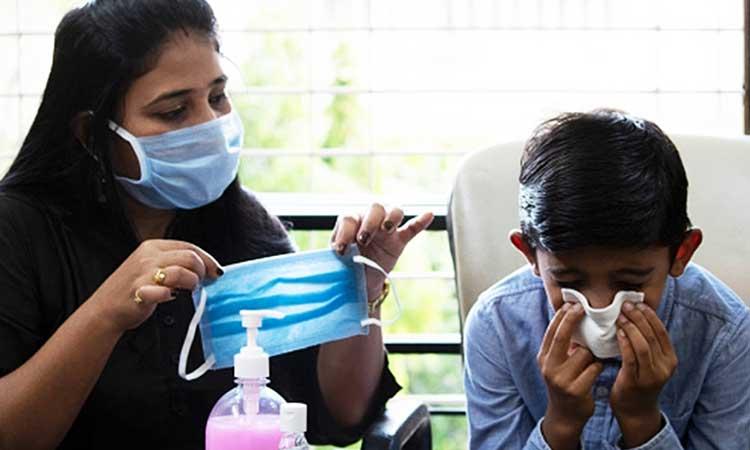A long-lasting dry cough that refuses to go away, repeated flu/viral infections, and low immunity amid disturbing weather patterns, Indians from Delhi-NCR to Mumbai are suffering a lot in the New Year. Health experts on Monday said that poor air quality coupled with increased susceptibility to viral infection have contributed to the current situation.
Dry cough is a common complication of upper and lower respiratory viral infection and it may be present for 3 weeks to 3 months after acute phase.
According to health experts, there has been a spate of viral infections which has been doing rounds since December 2022. Most of the infections are related to respiratory tract and are in the form of cold, cough, and fever.
Also read |Giorgia Andriani Inspired Makeup Looks
"What has been a concern is the fact that most of the patients are taking about 2 to 3 weeks to get better from the post-viral cough. It is thought that the poor air quality coupled with increased susceptibility to viral infection both have contributed to the protracted convalescence," Dr Anita Mathew, Infectious Disease Specialist, Fortis Hospital, Mulund, told IANS.
No age group is exempt and the reason is mainly attributed to post viral inflammatory cascade affecting upper or lower airway or both, added Dr Anish Gupta, lead consultant, ENT, C.K. Birla Hospital, Gurugram.
"Quality of air may also be responsible for increase in severity and duration of coughing," said the doctor.
Changes in temperature can weaken the immune system, making people more vulnerable to flu or viral infections that can cause a persistent dry cough due to inflammation and irritation of the airways or postnasal drip from congestion and sinus pressure.
Also read |3 ways weddings have evolved over the years
According to Dr Shovna Veshnavi, Consultant, Department of Internal Medicine, Jaypee Hospital, exposure to indoor or outdoor air pollution can irritate the respiratory system, causing inflammation and making it more vulnerable to infections.
"Prolonged exposure can weaken the immune system, increasing the risk of infections and causing respiratory symptoms such as coughing," she told IANS.
Individuals with a history of respiratory illness, such as asthma or COPD, are at an increased risk of contracting respiratory infections and may experience severe symptoms, including coughing, shortness of breath, and chest tightness.
They may also have weaker immune systems, making it more challenging to fight off infections.
"Flu can lead to acute bronchitis. It can cause inflammation in the bronchial tubes that carry air to the lungs. This can result in coughing, wheezing, and shortness of breath. Individuals with weakened immune systems or pre-existing respiratory conditions may be more vulnerable," said Dr Veshnavi.
Dr Mathew said that the pollution in Mumbai has been a major contributory factor for the prolonged cough.
"Breathing exercises, having home-based remedies also help. Vaccination for flu preferably in May-June of every year will also reduce the incidence of catching infection," she told IANS.
Drinking plenty of fluids can help to thin mucus and soothe a dry cough. Water, herbal tea, and warm broth can all help to keep you hydrated and soothe your throat.
"If the cough persists or is accompanied by other symptoms such as chest pain or difficulty breathing, it is important to seek medical attention to rule out any underlying medical conditions," said Dr Veshnavi.


















